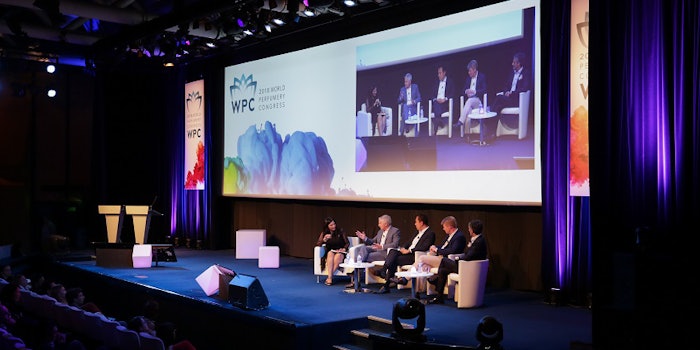
Day two of World Perfumery Congress continued the momentum of the first day, with a full day of presentations on creating a new fragrance experience for consumers, the expanding niche market and future-proofing the industry.
Creating a Scent Experience
Opening keynote Eric Korman, founder of Phlur, addressed how shifting consumer preferences, digitization and transparency planted the roots for the fragrance brand.
“When I became a customer of the category, I bought a bottle of fragrance and turned it around … I would see three worlds – water, alcohol and fragrance. What’s in fragrance?” said Korman. “All in the {industry} know. You all know the formulas, but the customer doesn’t know.”
Korman explained that consumers are looking to buy products from brands that are relatable to their lifestyle and values surrounding wellness, provenance, ethical sourcing and transparency. With the advent of digital media, information is easily accessible, though not always reliable. It's up to the brands to address consumers' questions clearly and honestly to maintain a reliable reputation and ensure a product's success.
“The most important event over the past two decades in olfaction …. is a desperate ongoing consumer aspiration for fragrance experiences to carry more meaning.”
Reviving Perfumery's Golden Age
Later in the day, the topic shifted to one of the most popular fragrance categories, the niche segment, with a presentation by fragrance journalist Eddie Bulliqi.
“Niche was first and foremost conceived as a revival of golden age perfumery principles that relished the feeling of classical perfumery with good quality materials [that are] allowed to thrive in a complex structure,” said Bulliqi. “A kind of back-to-roots model.”
The presentation addressed a variety of niche fragrance launches, along with an arguably unfortunate trend. In addition to consumers wanting more from their fragrances, they are also looking for fragrances with simpler packaging, ingredients and concepts. Bulliqi argued that if this trend continues it can impact the diversity of fragrance and its original purpose of fostering creativity.
“The most important event over the past two decades in olfaction …. is a desperate ongoing consumer aspiration for fragrance experiences to carry more meaning,” said Bulliqi. “People want their fragrances to make them feel more, stimulate them more specifically and exercise them more intellectually.”
Fragrance Leaders Weighs In
Wrapping up the event for day two was a panel discussion on the future of the fragrance industry by the heads of many of the top fragrance houses.
Led by Farah Ahmed, president of Fragrance Creators, the panel consisted of Felix Mayr-Harting, global head of fine fragrance of Givaudan; Dionisio Ferenc, vice president of global fine fragrance for IFF; Ricardo Omori, senior vice president of global fine fragrance for Symrise; and Jerry Vittoria, president of fine fragrance worldwide for Firmenich. During the closing presentation, each speaker weighed-in on a number of issues including sustainability, consumer demands and the emergence of digitization.
“I was curious about the challenge for fine fragrance when it comes to e-commerce,” asked Ahmed. “How does one tell the story without scent for a fine fragrance?”
"I think it is one of those things that we think that we can't sell fragrance online because you can't smell it. I don't think that is the case at all," replied Mayr-Harting. "You look at the growth in the fine fragrance category [and it] is coming from online growth... We have a very great story to tell. Sometimes, we don’t tell it as effectively as we should. And unfortunately, we have a consumer who is often very confused about the story,” said Mayr-Harting. “Social media and the whole digital space is a wonderful opportunity for us to really make the story a bit simpler [and] more accurate.”
Adding to that response, Ferenc said “I like to see us as an enabler. To me, digital is a different way to do the storytelling and story selling. It gives you access to a lot of populations. It is true that today you can’t smell through digital, but certainly it gives us a tremendous flexibility to do proper storytelling, selling and education of consumers."
Taking a bird’s eye perspective of the fragrance industry, Ahmed then asked “We see the rate of globalization increasing at a tremendous rate in so many ways. In terms of the fragrance sphere, fine fragrance, what are your thoughts on globalization and emerging markets? Where do you see the most opportunity?”
"I see opportunities everywhere. I think we went too fast some time back in the globalization mode [with standarization] and the way we sell fragrance became a bit monolithic," said Vittoria. "When it comes to fragrance creation, we recognize that too many compromises were made in the past to fit that one-size-fits-all model."
Adding to the topic of globalization, Omori said, "It is clear today that the consumers are starting to connect with local ingredients. China is a good example. You can see local brands develop fragrances based on local ingredients."










